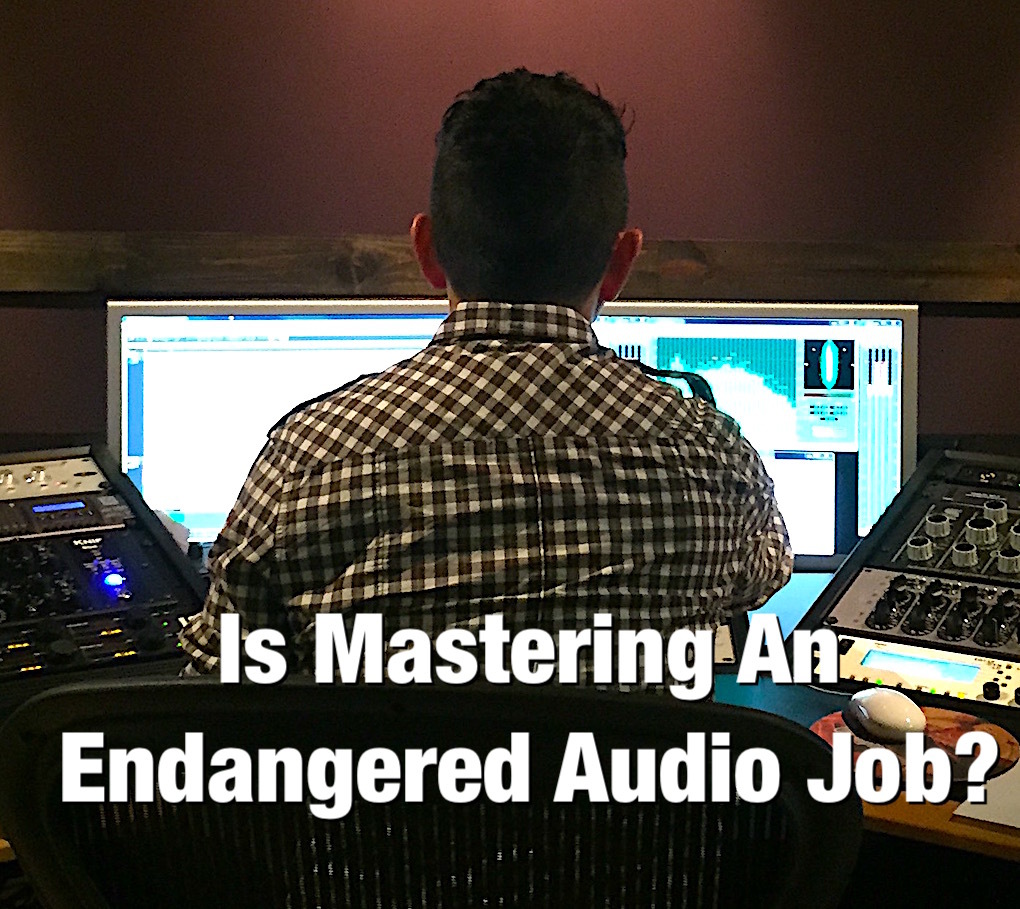- in Production by Bobby Owsinski
Is Mastering An Endangered Audio Job?

Mastering engineers are some of my favorite people in the music business and many of the best are friends that I speak with frequently. One subject that’s been coming up more and more in conversation is how much that business has changed, and that work is getting much harder to find.
It’s No Surprise
This is actually no surprise when you think about it. Just about anyone can buy the same software tools that many mastering engineers use, even though the skills to use them may be lacking. Some mastering engineers even have their own branded plugins or presets that simulate their hardware and software signal chains, which may help engineers on one hand, but also encourages them to stay DIY and not seek out the services of a pro.
The the fact that it’s now a singles instead of an album business has changed everything as well. An album would equate to anywhere from a half to a full day’s work filled with billable hours. Singles obviously take less time, but again, also encourage the engineer, producer or label to go the DIY route instead.
When The Downturn Started
The mastering business actually began to suffer with the dawning of the digital age. Back in the days when vinyl was king, a mastering house made most of its money from the lacquer masters that they created then sent to the pressing plant. For an album by a major artist that the label felt would be a worldwide hit, as many as a dozen lacquer masters were made and sent to pressing plants around the world. This was a labor intensive procedure and the mastering house (no such thing as DIY then – lathes and the infrastructure around them were expensive) charged accordingly.
When the CD entered the scene, it actually turned into the heyday of mastering. At first, a CD master could only be created via high-priced custom burners, a 3/4 inch master tape from a Sony 1630 digital tape machine, and later, a PMCD disc or exabyte tape. Regardless of how it was made, the mastering house charged anywhere from $500 to $1,000 or even more for each CD master – and that was on top of the mastering engineer’s run-down time to prep the master. Let the good times roll, and roll they did.
But things began to change when CD pressing plants no longer required a custom PMCD master, and instead could press directly from a home-recorded CD-R. Do-it-yourself mastering entered the scene. Mastering engineers found their CD masters were no longer need, and the prices dropped.
Today with physical product no longer mandatory for an artist, it’s pretty easy to self-master, check it via a variety of excellent plugins, then upload directly to a service like Spotify or via middleman like CD Baby or TuneCore. The major labels still prefer to master most of their releases, but most indie artists can do without and still have their song appear on the major streaming services.
Boy, It’s Changed
So most mastering engineers are now picking up what amounts to scraps of work. The business is mostly singles with an album slipped in here and there. Where most of the major mastering engineers used to be doing several albums a day, now that many may come in a week with the rest singles. Where the big mastering houses existed solely on label work, now it’s mostly independent releases. Soon you’ll begin to see those facilities close and many of the older engineers retire or transition into archiving.
Of course, if you own a lathe, you’re still busy and going strong. Those engineers won’t see their jobs change much, as lathes are no longer being made (there are rumors of a new one about to be introduced, though that’s been around for a few years now), they’re really expensive, and require maintenance that goes way beyond what a DIYer can perform. Unless vinyl runs its course and falls out of favor, that’s as safe a job in this business as you’ll find, but there’s only a limited number of them that requires hands-on training with a mentor to get good at it.
Still Valuable
When it comes right down to it though, a true mastering engineer is still a highly valuable and worthwhile resource. You’re paying for the ears and experience, which can’t be found in a plugin with a preset.
You’re paying for clean and precise signal path and playback environment, which is very unlikely to be duplicated at home.
You’re paying for an external trusted opinion and taste that a DIY job can never provide.
So here’s to the mastering engineers of the world. Enjoy them while they’re still around. It’s an audio job that may not exist in its current form for much longer.
